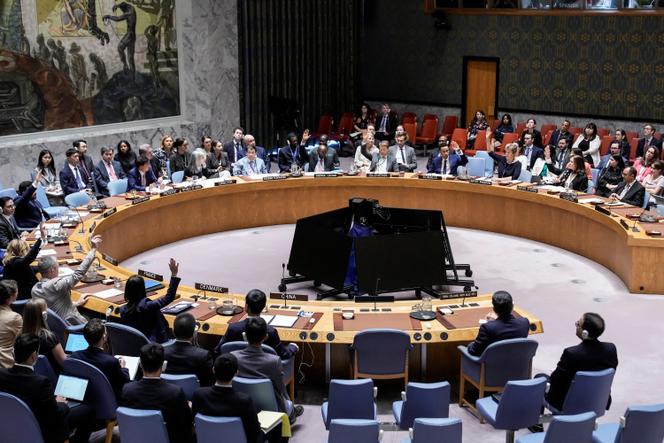


The UN Security Council on Friday, September 26, rejected another last-ditch effort to delay the reimposition of sanctions on Iran over its nuclear program a day before the deadline and after Western countries claimed that weeks of meetings failed to result in a "concrete" agreement. The resolution put forth by Russia and China – Iran's most powerful and closest allies on the 15-member council – failed to garner support from the nine countries required to halt the series of UN sanctions from taking effect Saturday, as outlined in Iran's 2015 nuclear deal with world powers.
"We had hoped that European colleagues and the US would think twice, and they would opt for the path of diplomacy and dialogue instead of their clumsy blackmail, which merely results in escalation of the situation in the region," Dmitry Polyanskiy, the deputy Russian ambassador to the UN, said during the meeting.
Barring an eleventh-hour deal, the reinstatement of sanctions – triggered by Britain, France and Germany – will once again freeze Iranian assets abroad, halt arms deals with Tehran and penalize any development of Iran's ballistic missile program, among other measures. That will further squeeze the country's reeling economy. In an interview Friday afternoon, Iranian President Masoud Pezeshkian called the decision "unfair, unjust and illegal."
The move is expected to heighten already magnified tensions between Iran and the West. But despite previous threats to withdraw from the Nuclear Nonproliferation Treaty, Pezeshkian said in an interview with a group of reporters that the country had no intention to do so right now. North Korea, which abandoned the treaty in 2003, went on to build atomic weapons.
Four countries – China, Russia, Pakistan and Algeria – once again supported giving Iran more time to negotiate with the European countries, known as the E3, and the United States, which unilaterally withdrew from the accord with world powers in 2018.
"The US has betrayed diplomacy, but it is the E3 which have buried it," Iranian Foreign Minister Abbas Araghchi said after the vote. "This sordid mess did not come about overnight. Both the E3 and the US have consistently misrepresented Iran's peaceful nuclear program."
The European leaders triggered the so-called "snapback" mechanism last month after accusing Tehran of failing to comply with the conditions of the accord and when weeks of high-level negotiations failed to reach a diplomatic resolution. Lots of diplomacy as deadline nears
Since the 30-day clock began, Araghchi, has been meeting with his French, British and German counterparts to strike a last-minute deal, leading up to this week's UNGeneral Assembly gathering. But those talks appeared futile, with one European diplomat telling the Associated Press on Wednesday that they "did not produce any new developments, any new results."
Therefore, European sources "expect that the snapback procedure will continue as planned."
But Pezeshkian painted a different image of how the meetings transpired, saying that it was the Europeans and Americans who refused to make a deal during the high-level week. In a sprawling interview on the sidelines of the UN, the president said that one night this week, members of the US delegation were supposed to meet with their Iranian and European counterparts but did not show.
"The Americans never showed up, what are we supposed to do?" Pezeshkian said. He added that when the Americans did show during the six weeks of negotiations earlier this year, it was hard to rely on their word and that President Donald Trump's envoy, Steve Witkoff, had flip-flopped on issues that were previously agreed upon.
"The distrust at this moment between us and the US is so large," Pezeshkian said, answering a question about what it would take for Iran to come back to the negotiating table.
But even before Araghchi and Pezeshkian arrived in New York on Tuesday for the annual gathering, remarks from Iran's supreme leader, Ayatollah Ali Khamenei, that peace talks with the United States represent "a sheer dead end" constrained any eleventh-hour diplomatic efforts from taking place.
European nations have said they would be willing to extend the deadline if Iran complies with a series of conditions. Those include resumption of direct negotiations with the US over its nuclear program, allowing UN nuclear inspectors access to its nuclear sites, and accounts for the more than 400 kilograms (880 pounds) of highly enriched uranium the UN watchdog says it has.
